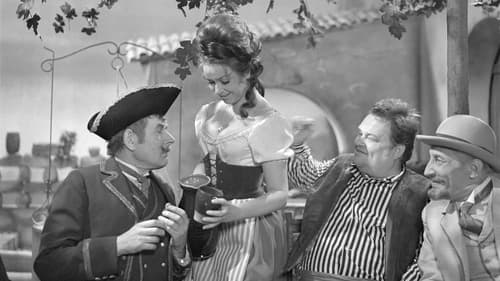Gustav Opočenský
Nacimiento : 1920-12-07, Prague, Czechoslovakia
Muerte : 1992-12-17
Historia
Gustav Opočenský was the son of Bohemian poet and journalist Gustav Roger of Opočenský (1881-1949).
Originally, he began to study law, but after closing Nazi colleges in 1939 he headed for the theater, close to art, thanks to his father. He did not undergo any professional training, but after the war he gained his first permanent engagement in the Realistic Theater in Prague (1945-1946). Due to his unbridled inheritance, his father in the mid-1950s came into conflict with the Communist power, he had to go to the theater in Cologne from Pardubice and eventually in 1956 he banned the ban on artistic activity. Then he worked as a miner, later a worker in Stalin's races in Záluží near Most, but at the beginning of the following decade he managed to return to the theater.
Subsequent banning of activity silenced Opočenský for twelve years, he reappeared in the film MARATÓN (1968).
We can also remind him of his comedic role as an old Nazi in the movie ZÍTRA VSTANU AND I WILL BE TEA (1977).
Gustav Opočensky's wife was actress Eva Strupplová (* 1926). Bohemian and artistic family genes also accompany the lives of their two sons, the artist and musician Petr Opočenský (* 1950) and sculptor Pavel Opočensky (* 1954).
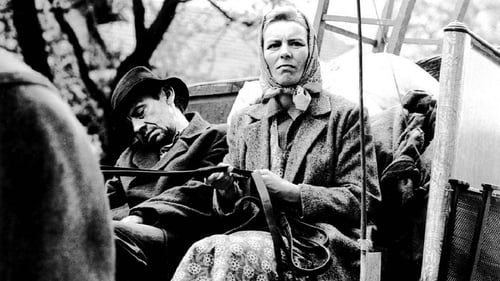
Matylda (Jaroslava Ticha), who lives in the Czech countryside, is trying to arrange burial plans for her dying husband, Jan (Ludvik Kroner). While Matylda hopes to have a funeral for Jan in the small town where they once lived, there are complications. Years earlier, Jan spoke out against the Communist government and was consequently expelled from the town. When Matylda fails to convince a local politician to allow the ceremony, she uses her husband's funeral as a public show of dissent.

Luciper
Princess Julia doesn't want to marry an old prince Hubert so she runs away from home. She meets two old magicians and join the circus, where she meets lovely Franta Kuldan and evil devil performer.

Vorsitzender Simiak
Juraj Jakubisko's first feature film after a forced nine-year-long break is a story about an unconventional man, Jozef Matúš. He arrives to a small village in eastern Slovakia to settle down and start a family. He is ready to subordinate everything to his goal. It all starts with stealing building material and ends with him disregarding those close to him to a point where his ambitions are turning against him. Build a House, Plant a Tree is a viewer-friendly film with a plot resembling a western, including several attractive action sequences.

Ranený Banderovec
The story of 1947, when Bender's band, after a beating of the Nazis, tried to fight their way through Czechoslovakia to Austria. They come out of the forest to occupy the family's rural estate, kidnap doctors to help heal one of their wounded.
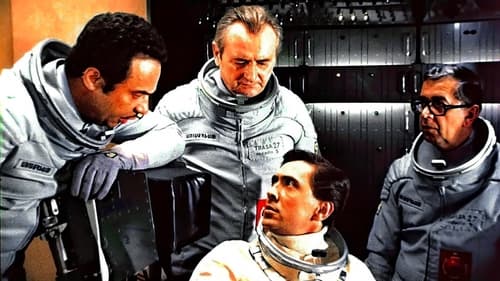
Former Nazi Klaus Abard survives to the 1990s by taking anti-ageing pills. He plans to use a time travel trip to return to Germany in 1944 and present Hitler with a hydrogen bomb, so that he can win the war. Unfortunately the pilot, woman-chasing Karel Bures, dies on the morning of the trip and his earnest twin brother Jan impersonates him, without knowing about the plot. The plot goes wrong when they lose the bomb and land near Hitler's bunker in 1941, at a time that the Nazis sense victory. Bures, with two of the plotters, escape capture by the Nazis and make it back to the time machine. Bures programs the machine to return one day before they left, because he figures he can then save his brother and foil the plot.

(segment "Silvestr 1948")
Three short stories ("Zelenáči 1945", "Silvestr 1948" and "Zimní vítr 1951") about members of the SNB units guarding the Šumava border in the post-war years. Ivo Toman had artistic supervision over the debutants. The theme of the third short story was made in 1959 for the film "Entry Forbidden" by František Vláčil, who was also starting at the time.

Nývlt

1974 Czechoslovak drama film directed by Karel Steklý.
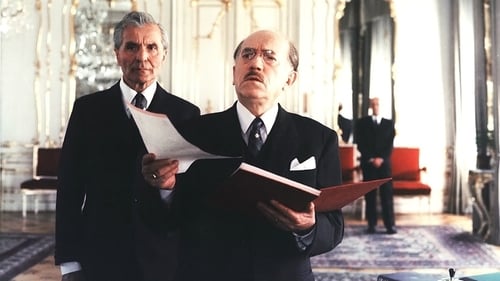
This feature film based on the events of 1938 is a chronicle of the futile efforts of the Czechoslovak president Edvard Benes (Jirí Pleskot), politicians and ordinary citizens, to save the independence and the territorial integrity of the state from the advance of Hitler's Germany. On the 29th of March 1938 the leader of the Sudeten Germans Henlein (Werner Ehrlicher) has a meeting with Hitler (Gunnar Möller). Hitler orders him to intensify pressure on the Czechoslovak government. On the 24th of April in Carlsbad, the Sudetendeutsche Partei (Sudeten German Party) decides upon eight demands that are unacceptable to the Czechoslovak President, since they would ultimately lead to the break-up of the Republic. Benes still shows a certain willingness to negotiate, and Henlein resents this. The Germans are determined to make further negotiations impossible through incidents and violence.
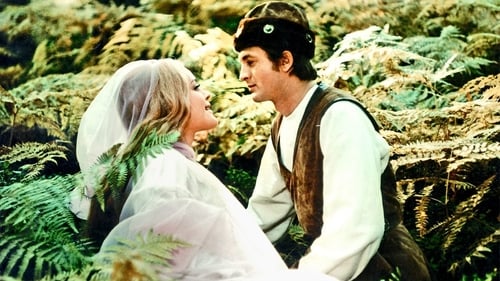
King
The hero of this popular fairy tale is a young prince who, after the death of his parents, goes out into the world. During his travels he meets a magical talking horse and falls in love with the beautiful princess Slavna. On the advice of his horse, he binds one eye and pretends to be dumb and enters into service as the castle gardener.

Narrator (voice)

Eleven-year old Mísa has the temperament of a proper boy and endless problems with the grown-ups. It is no wonder that he longs to become an adult without further delay. Mísa keeps house together with his father and has various duties. After a failed attempt at dish-washing he goes off to the research institute where his father is working on an important invention. He is trying to produce a substance that would make poultry and other animals bigger and thus help the struggle against famine in the world, but so far he has only managed to produce a shrinking substance. After his father leaves the laboratory, Mísa mixes up different ingredients and makes the growth substance. He drinks it and instantly becomes an adult. His father, conversely, turns into a toddler after drinking the shrinking substance with his beer by mistake.
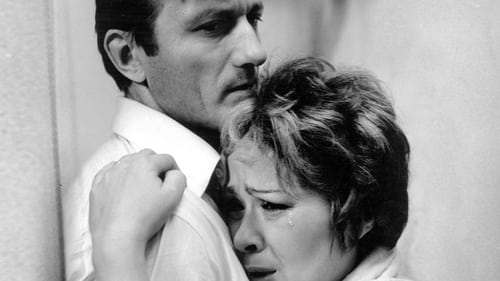
Ludvik, miembro del partido comunista, vuelve a casa tras haber descubierto que varios de sus compañeros ya no están en su puesto. Una vez en casa descubre que está siendo escuchado por el partido y que un grupo de hombres le esperan fuera de su casa, por lo que teme ser el siguiente en ser "relegado" de sus funciones...

Basada en textos reales sobre juicios inquisitorios, esta película tiene como argumento el narrar las atrocidades que cometía la Inquisición sobre personas inocentes, y que por alguna razón eran catalogadas como brujas, herejes ó hechiceros.

It is 5 May 1945 and the uprising against the hated German occupiers has broken out in Prague. The Czech guards open the gate of the Pankrác prison to allow the prisoners to escape en masse. Many of them are shot dead by the German guards but young Ruda (Jaromír Hanzlík) manages to run away. He is taken care of by one of the Prague fighters, concierge Kytka. Kytka hides him in the flat of the house's owner where only the young maid Karla (Jana Brejchová) is left, ordering her to take care of Ruda.

Mikulas
After the battle of Sudoměř the Hussite teaching spreads through the whole country and people start leaving their homes to help build the fortification of Tábor. Prague citizens request help against the army of Zikmund. The Hussite army with Jan Žižka in the lead make their way towards Prague. They fortify themselves on the mountain Vítkov and engage in a bloody battle with Zikmund’s huge army.

Jindrich from Hradec
The second part of the revolutionary Hussite trilogy takes place in the years 1419-1420.

Popish Messenger
Jan Hus is a 1954 Czechoslovak film directed by Otakar Vávra. It is the first part of the "Hussite Revolutionary Trilogy", one of the most famous works of the Czechoslovak director, completed with Jan Žižka (1955) and Proti všem (Against All Odds, 1957).






